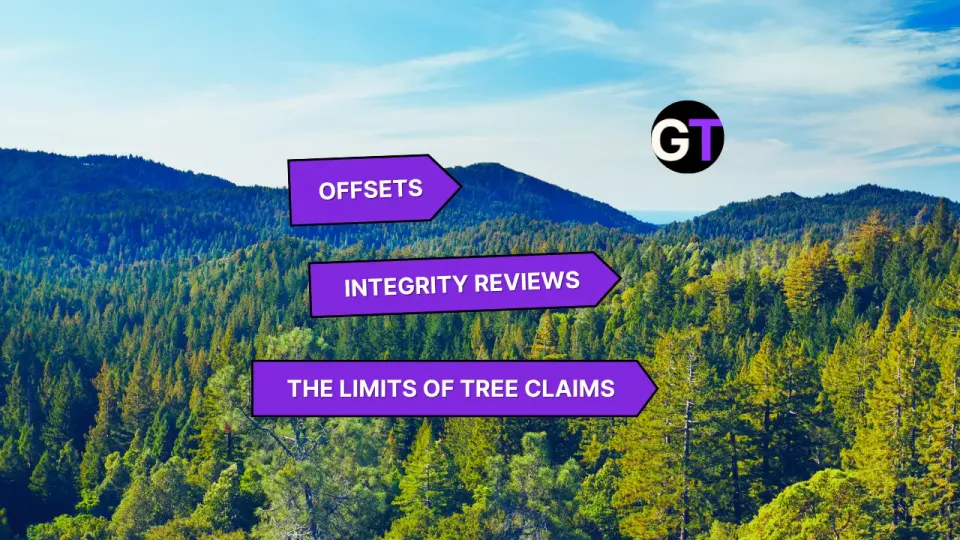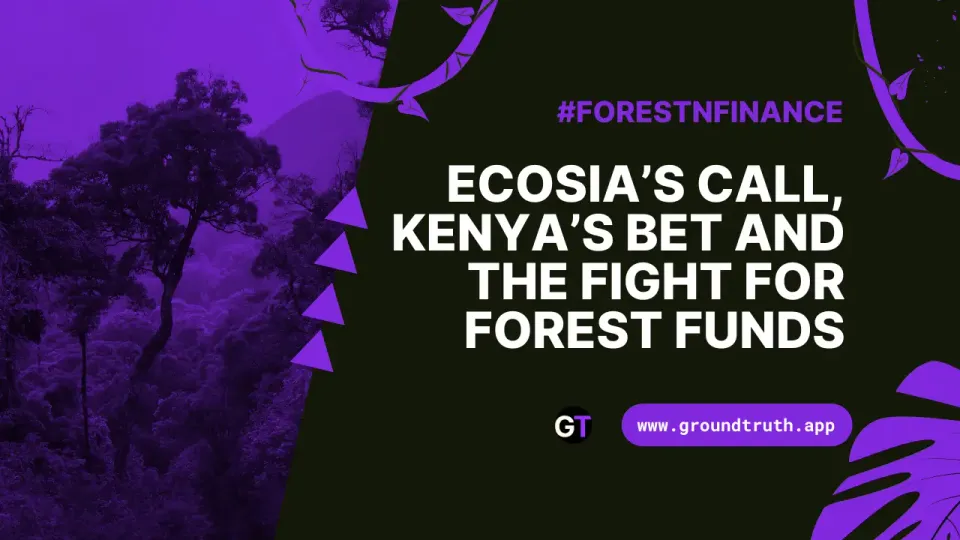Cameroon Aims to Save Forests While Doubling Coffee Production
Cameroon and CAFI sign $60M deal to double cacao, coffee production while protecting forests, but experts warn of deforestation risks.

Thi sstory by Yannick Kenné was republished from Mongabay.
- The Central African Forest Initiative (CAFI) and the Cameroon government have signed a $60 million agreement they say will fund the development of cacao and coffee production, as well as protect the country’s forests.
- The fund will support projects aimed at sustainably raising production from existing agricultural land, rather than expanding into forested areas.
- Cameroonian forestry expert Ghislain Fomou says it’s unclear if cacao and coffee production can be increased without causing more deforestation.
Cameroon’s government says it plans to invest heavily in agriculture over the next decade and combine economic growth and sustainable development, while preserving its forests. A recent agreement signed between the government and the Central African Forest Initiative (CAFI) will invest $60 million toward achieving these aims.
But the country has lost an average of 110,000 hectares (about 272,000 acres) of forest per year since 2013 — in 2023, forest loss spiked to 204,000 hectares (504,000 acres) — casting doubt on claims it’s possible to both double commercial cacao and coffee production and reduce deforestation.
According to data from forest monitoring platform Global Forest Watch, Cameroon lost more than 2 million hectares (5 million acres) of forest between 2001 and 2023, primarily due to logging, mining and agriculture.
A June 2024 study published in the journal PLOS ONE identified cacao cultivation as one of the drivers of deforestation in the Congo Basin and in Cameroon in particular. Its authors suggested mitigation measures such as agroforestry systems, combined with better land planning and incentives for sustainable agricultural and forestry practices, as ways to reduce the risks of deforestation linked to cacao.
According to the letter of intent signed in October 2024, the $60 million fund will be supported by the European Union, Norway, France, South Korea and other countries, and will back four major projects between 2025 and 2027.
One of these projects is the Development Fund for the Cocoa and Coffee Sectors . Worth approximately $20 million, this project will enable 30,547 producers to receive payment for environmental services including things like establishing deforestation-free cacao or coffee plantations, and intensifying production on existing plantations covering approximately 92,000 hectares (227,300 acres).
A second $20 million project will develop and implement incentive mechanisms for the management of high-value, high-carbon forests in the Grand Mbam region in central Cameroon, as well as support low-emission development of selected value chains. Another $6.4 million of funding is intended to reconcile the demand for land and resources for economic growth with sustainable ecosystem management in the regions of Centre, South and Littoral. The fourth project will allocate $13.6 million to support the intersectoral and multilevel coordination of Cameroon’s forest and climate policy and the promotion of a green economy.
Saïdou Hamadou, an official in the country’s Ministry of Finance and a member of the CAFI team in Cameroon, told Mongabay the partnership aims to improve productivity of both industrial and family-scale cultivation on existing land.
“It aligns with national and regional land-use plans and zoning plans, as well as with agroforestry. This will provide a response to growing regional demand [for cacao and coffee], while reducing demand for new land and deforestation for agricultural production,” he said.
In an email message, the CAFI secretariat said the projects aim to promote sustainable intensification and increased productivity of existing agricultural lands to meet the growing demand for food. “Producing more food on existing land reduces demand for new land and deforestation for agricultural production. This is an essential step to end deforestation and ensure food security. This is sustainable intensification rather than destructive extensification.”

Agriculture: cause of deforestation, or solution?
In April 2024, several environmental protection organizations, including international NGOs Greenpeace and Milieudefensie, and the Environmental Investigation Agency (EIA), as well as local green groups Center for Development and the Environment (CED) and Green Development Advocates (GDA), sent a letter to development partners in Cameroon to criticize the direction of CAFI’s Cameroon investments. They wrote that Cameroon must be considered a country at high risk of deforestation, due to agricultural policy that favors deforestation.
The letter’s signatories called for CAFI to redirect investment toward projects that contribute to stopping the destruction of key areas of Cameroon’s rainforests.
Cameroonian forestry expert Ghislain Fomou, director of the natural resources management program at the NGO Support Services for Local Development Initiatives (SAILD), also said the possibility of achieving sustainable, deforestation-free cacao and coffee production is ambiguous. But, he told Mongabay, funding from CAFI could also have been directed toward agricultural sectors that are even more damaging to Cameroon’s forests.
“There are value chains that cause more deforestation than cacao — palm oil, for example. There is now a large area of permanent forest that has been allocated for palm oil production in Campo,” he told Mongabay, echoing an example cited in the environment groups’ letter to stakeholders, where 60,000 hectares (148,300 acres) of forest in the south of the country are threatened by the expansion of oil palm plantations operated by Cameroon Vert Sarl (Camvert). “All stakeholders know that cacao production in Cameroon has less of an impact on forests due to the use of agroforestry, which increases productivity.”
CAFI says it will achieve the partnership’s goals of preserving and sustainably managing Cameroon’s forests by strengthening intersectoral governance processes to ensure Cameroon remains economically competitive, while improving the well-being of the population through sustainable forest management.
A financing mechanism will be set up to help regional and municipal councils fund sustainable management, conservation, and restoration of forests.
This story was first published here in French on Nov. 21, 2024.
License
Kenné, Yannick. “Cameroon Aims to Double Cacao, Coffee Production, Yet Also Save Forests.” Mongabay, 21 Nov. 2024. Republished under a Creative Commons Attribution-NoDerivatives 4.0 International License.




